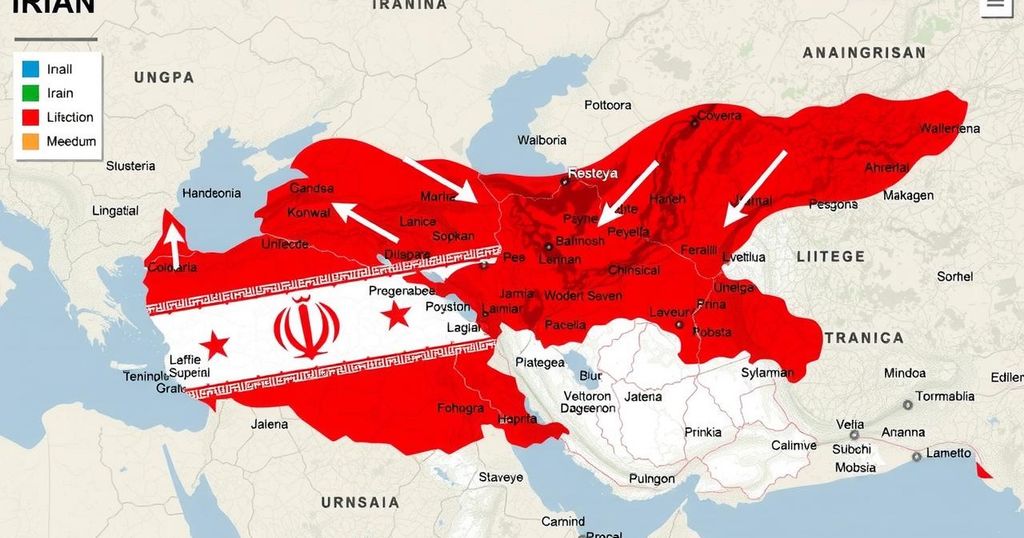Iran’s Position in the Evolving Syrian Conflict

Iran continues to support Syrian President Bashar al-Assad amid a significant offensive by opposition fighters seeking to overthrow his regime. Iranian officials suggest a potential for troop deployment in response to intensifying conflict, although evidence of military mobilization remains sparse. Iran’s foreign policy navigates complex relations with Turkey and Russia, while also warning of broader regional consequences stemming from the conflict.
Iran maintains its backing for Syrian President Bashar al-Assad amid escalating opposition offensives aimed at toppling his government. In response to the increased violence, Iranian Foreign Minister Abbas Araghchi has indicated that Iran may consider deploying troops in Syria, although there is little evidence of significant military mobilization at this time. Discussions involving Iran, Russia, and Turkey have taken place, highlighting the need for political dialogues between the Assad government and what Tehran terms as ‘legitimate opposition groups’. Amidst claims that the opposition is supported by foreign powers, Iran warns of the regional implications of the conflict, especially against the backdrop of heightened tensions related to Israel’s military actions in Gaza.
The recent offensive initiated from Idlib by Hayat Tahrir al-Sham (HTS), a group linked to a prior al-Qaeda branch, has gained momentum in several key cities. As HTS attempts to rebrand itself as a more moderate faction, Iranian officials express concerns regarding Turkish support for these anti-Assad forces, exemplifying the complex geopolitical dynamics at play. Iranian analysts suggest that while previous civil war dynamics were ideologically driven, the current situation revolves around strategic objectives, with Turkey actively seeking to alter the balance of power in northern Syria, potentially at Iran’s expense.
Moreover, Iranian officials express apprehension regarding a potential collapse of Assad’s regime, which would have a cascading effect on Iranian interests throughout the region. Calls for increased Iranian military involvement reflect a sense of urgency, yet official reports of troop movements remain uncorroborated, indicating that Tehran may still be employing proxy forces rather than a direct military presence. With regional stability in jeopardy, analysts caution that Syria may descend further into fragmentation and chaos, impacting neighboring countries severely.
Iran’s involvement in Syria has been a critical aspect of its foreign policy, particularly since the outbreak of the Syrian civil war in 2011. Tehran views the Assad regime as a crucial ally and part of its broader strategy to maintain influence in the region. The conflict has intensified with opposition forces launching coordinated offensives, raising concerns in Iran about the stability of the Assad government. These developments prompt Iran to reaffirm its support for Assad while navigating complex relations with other regional players, such as Turkey and Russia, complicating efforts for a stable resolution to the ongoing conflict.
In summary, Iran’s positioning in the Syrian conflict emphasizes its unwavering support for Bashar al-Assad while grappling with emerging challenges from opposition forces and shifting geopolitical dynamics. Despite threats of troop deployment, recent actions suggest Iran remains cautious, primarily relying on proxy forces. The ongoing instability and potential impacts of the conflict extend beyond Syria, posing risks to Iran’s interests in the region, particularly amidst the backdrop of escalating tensions involving Israel.
Original Source: www.aljazeera.com





